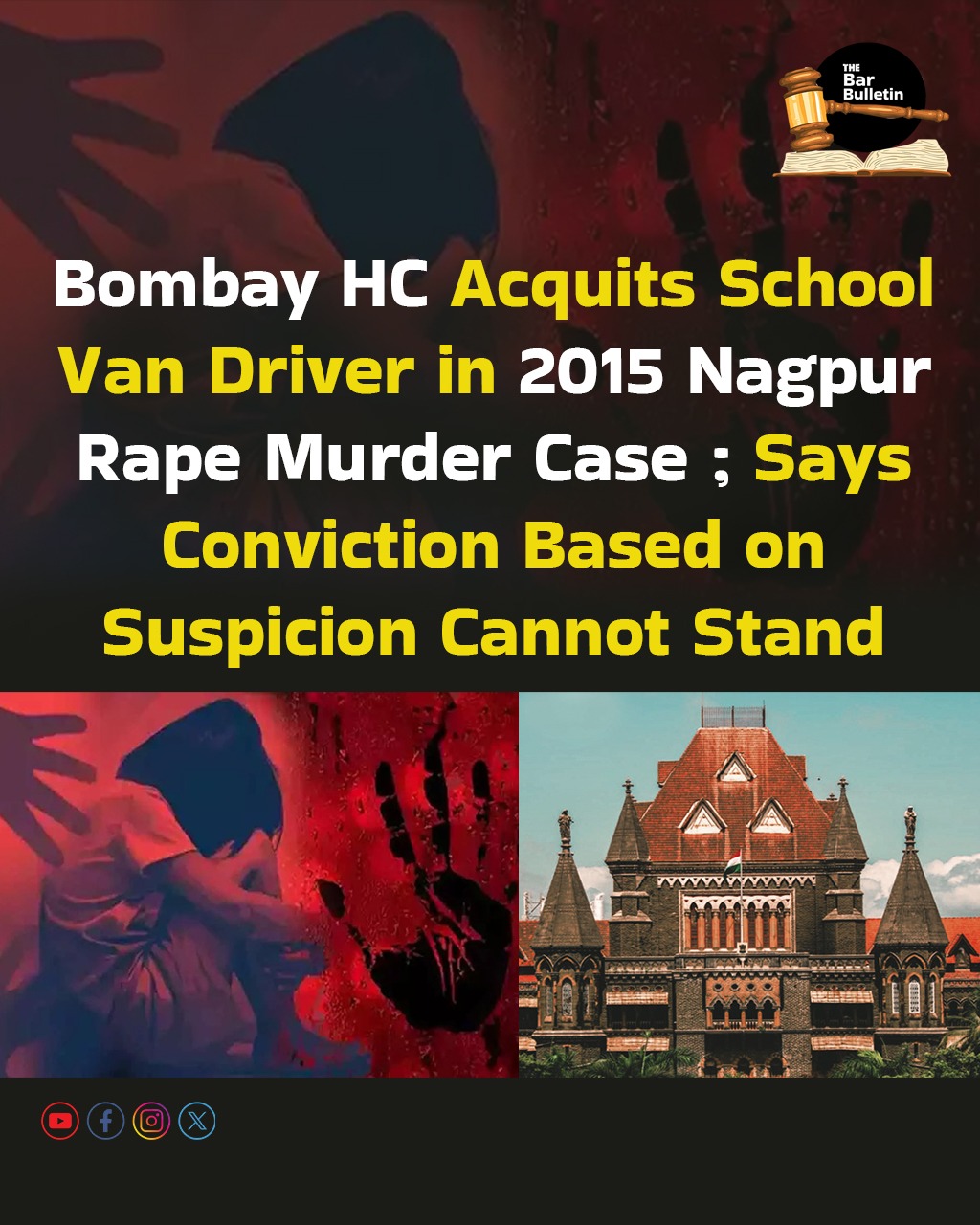The Nagpur Bench of the Bombay High Court has acquitted appellant, a 30-year-old school van driver, who had been convicted in 2019 for the rape and murder of 20-year-old Yugandhara Yeole (“Victim”). The Court held that the conviction was based on suspicion and incomplete circumstantial evidence, and could not stand in law.
On 16 September 2015, Yugandhara left home in the afternoon to visit her grandmother but did not return. Later that night, her body was found in the Isasani MIHAN area, bearing ligature marks on the neck and multiple injuries. The prosecution alleged that appellant, who drove the school van for Victim’s younger sister, lured her into his vehicle and committed the crime. Chargesheet was filed before Judicial Magistrate First Class, Nagpur Under Sections 302 and 376(1) of IPC[1]. He was tried and, in November 2019, sentenced to life imprisonment for the offence of murder, though acquitted of the rape charge.
On appeal in High Court, appellant argued that the conviction rested entirely on suspicion and conjectures. There was no “last seen” evidence connecting him to the victim, the recovery of his clothes was from an open and accessible area, and no motive was established, which was crucial in a case based wholly on circumstantial evidence. Moreover, testimonies of prosecution witnesses were riddled with contradictions and material omissions, undermining the reliability of the case.
The Court considered the following issues-
(1) Whether the prosecution proves that, victim’s death was homicidal?
(2) Whether the prosecution proves that the accused, in between 5.00 p.m. of 15.09.2015 to 08.30 p.m. of 16.09.2015, at Isasani MIHAN area, Nagpur committed murder?
(3) Whether the interference is called for in the judgment and order of conviction passed by the Trial Court?
On the first issue, the Bench of Justice Anil L. Pansare and Justice Siddheshwar S. Thombre accepted the medical evidence and concluded without doubt that victim’s death was homicidal in nature.
On the second issue, the Court answered in the negative while stating that the case rested entirely on circumstantial evidence. The Court said that the only incriminating circumstance relied on by the trial court was that appellant had visited the victim’s house and enquired about her on the day of the incident. The Court observed that “merely asking about a person cannot be the basis of conviction.”
Referring to the Supreme Court’s ruling in Sharad Sarda v. State of Maharashtra[2], the Bench reiterated that suspicion, however strong, cannot substitute for proof, and that the chain of circumstances must be complete and conclusive.
Deliberating upon the third issue, the Court held that the conviction could not be sustained. It ruled that the Additional Sessions Judge, Nagpur, had wrongly relied on suspicion and conjecture while convicting the accused under Section 302 IPC[3].
Allowing the appeal, the Court quashed the conviction and life sentence imposed in Sessions Trial, ordered appellant’s immediate release if not required in any other case, directed refund of the fine of ₹5,000, and required him to furnish a personal bond of ₹15,000 under Section 437-A CrPC[4].
Appearances:
Appellant- Shri Nikhil Dawda, Advocate
Respondent- Shri A.R. Chutke, APP
[1] Replaced by Sections 103 and 63 of Bhartiya Nyaya Sanhita, 2023
[2] AIR 1984 SC 1622
[3] Replaced by Sections 103 of Bhartiya Nyaya Sanhita, 2023
[4] Replaced by Section 481 of Bhartiya Nagarik Suraksha Sanhita, 2023



